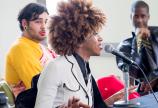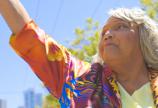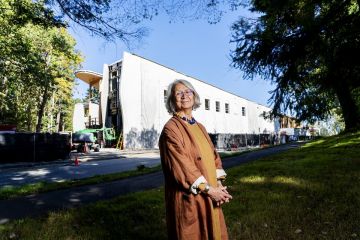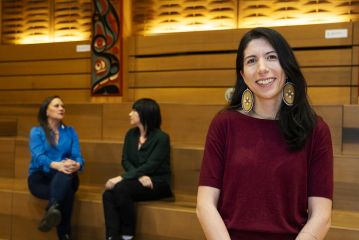Youth panel brings optimism to conference of over 350
- Anne MacLaurin
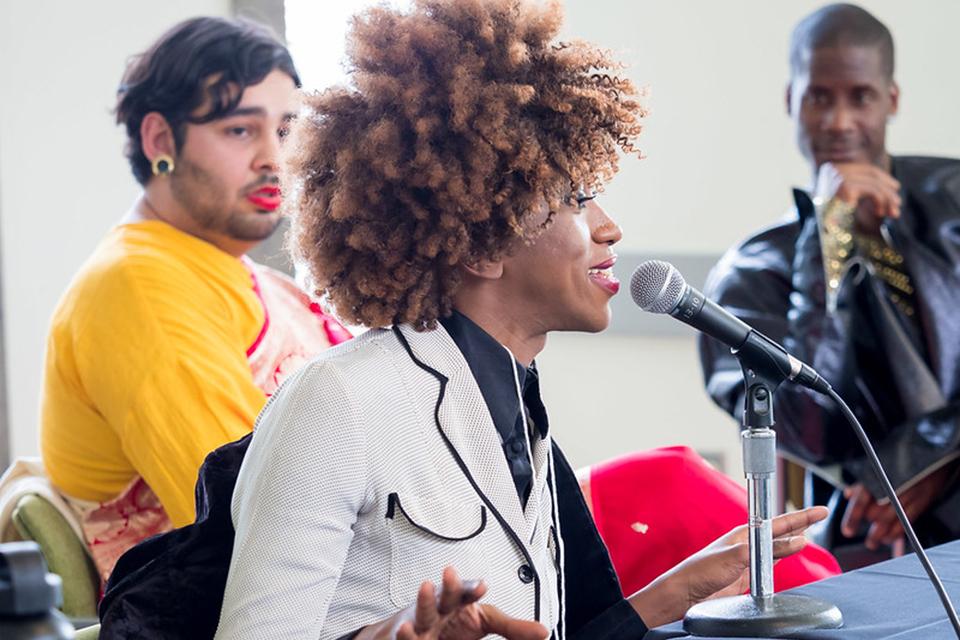
The first virtual gathering of the biennial Moving Trans History Forward (MTHF) was felt to be a resounding success by its participants, despite the challenges of shifting to an online format. The international conference, launched in 2014 and postponed last March due to the coronavirus, hosted 25 per cent more participants compared to 2018, tallying 379 attendees this year from 23 countries around the globe.
The MTHF conference—hosted by UVic's Chair in Transgender Studies—brings together some of the world’s top researchers, opinion leaders, transgender community activists and students to explore the history of transgender activism and crucial issues which impact the lives of Trans+ people today, and into the future.
In these times of COVID isolation and loss, Trans+ people have been especially hard hit. A virtual conference like Moving Trans History Forward that brings together hundreds of Trans+ people to celebrate, collaborate and inspire is needed more than ever.
—Chair in Transgender Studies Aaron Devor, UVic sociologist and founder of the Transgender Archives in UVic Libraries
The virtual venue provided people with a sense of community for the four days of the conference, explains Devor, and there were spaces for private conversations before and after formal events—very similar to an in-person gathering.
The online format allowed people to overcome some of the isolation that Trans+ people have endured this year, and also allowed people with a variety of disabilities to attend, without the significant expense and disruption of travel.
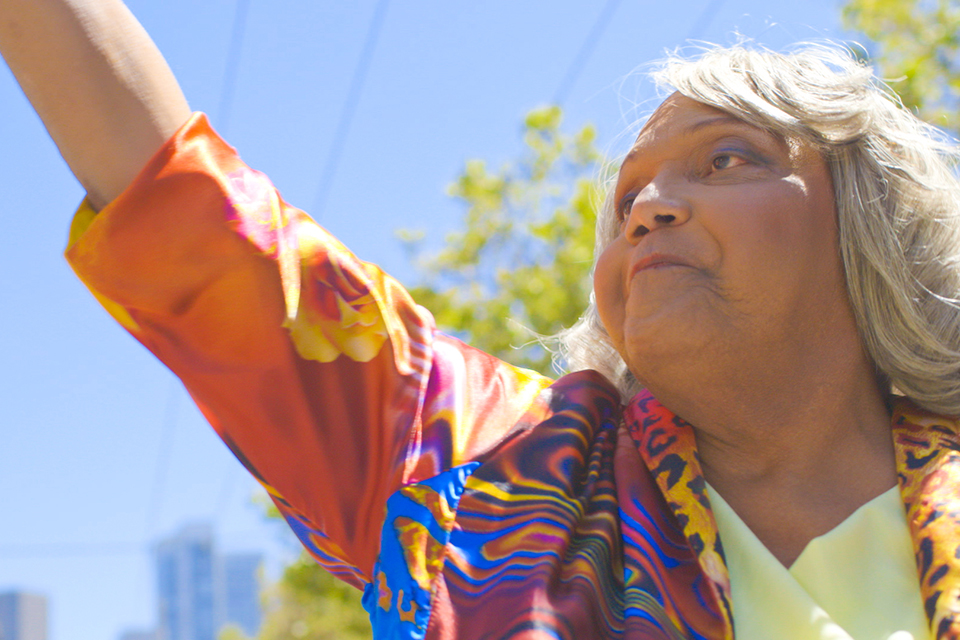
A conference highlight was keynote speaker Miss Major, a Black Trans activist who fought for over 50 years to uplift Trans women of colour. She shared her lived experiences as a veteran of the infamous Stonewall Riots and a survivor of Dannemora Prison and Bellevue Hospital’s “queen tank.” Miss Major was also in conversation with Toronto artist, Trans man and Black Lives Matter activist Syrus Marcus Ware and Vancouver Black Trans woman activist Kelendria Nation.
Over 100 presenters and four plenaries
The virtual conference exceeded Devor’s expectations for how smooth the fully online format was executed, with over 100 presenters and four engaging plenaries, including Blas Radi and Miss Major, as well as an Elders panel and a youth panel.
“Blas Radi, as world’s second Chair in Transgender Studies, spoke from Argentina about the challenges of doing Trans+ work in a university environment,” says Devor. “His talk was densely intellectually stimulating.”
The Elders Panel brought together five Trans+ elders: American Black Trans man lawyer and activist Kylar Broadus; American Trans woman, military veteran and environmental activist Joanna Clark; Toronto Trans woman Susan Gapka, who has been active in legislative change and union activism; Trans man Jude Patton, who started his activist career in the 1970s; and Two-Spirit Elder-in-training Chase Willier from Vancouver.
“It was just great to hear the weaving of the stories together,” says Broadus. “It was important to hear about the humanizing of each person's experience.”
“They exuded warmth and loving-kindness,” adds Devor. “Their message was one of optimism.”
The youth panel featured three art-based PechaKucha presentations about gender euphoria by younger Trans+ teenagers, with a panel of older Trans+ teenagers responding to the presentations by the younger teens.
“They were remarkably articulate and insightful,” describes Devor. “They closed the conference with much optimism for the future.”
Looking ahead to 2023
Based on feedback and interest from this year’s participants, Devor is considering a hybrid in-person and online event for 2023.
“The online platforms worked beautifully and allowed everyone to feel connected and engaged,” says Devor. “All feedback so far has been very positive.”
March is Pride Month at UVic. The university is committed to equity, diversity and creating a safe, supportive, inclusive environment for everyone who learns, teaches, works and lives at UVic. (Find out more)
Photos
In this story
Keywords: gender, history, diversity, human rights, transgender, sociology, inclusion, Chair in Transgender Studies, community, administrative
People: Aaron Devor
Publication: The Ring

